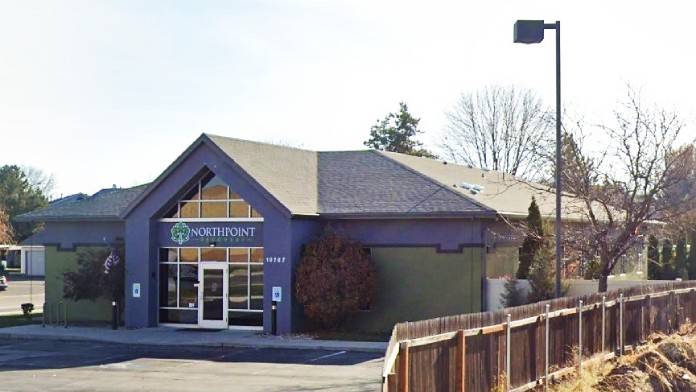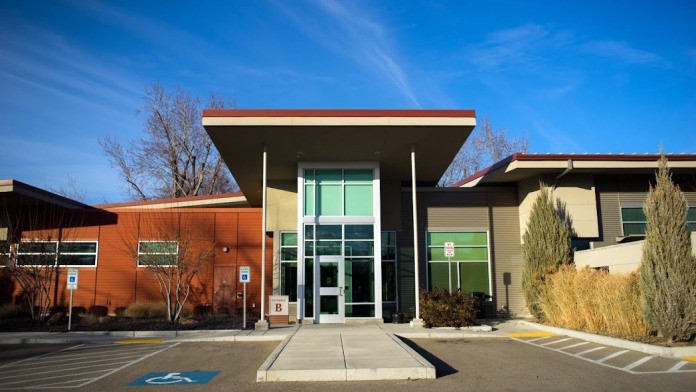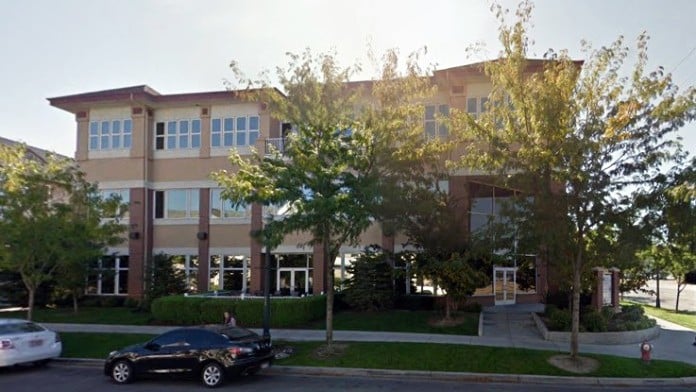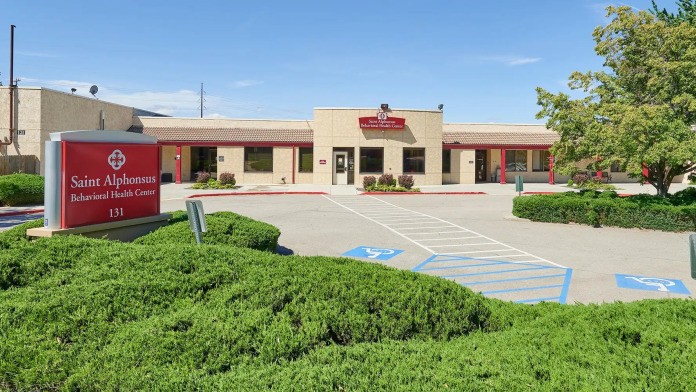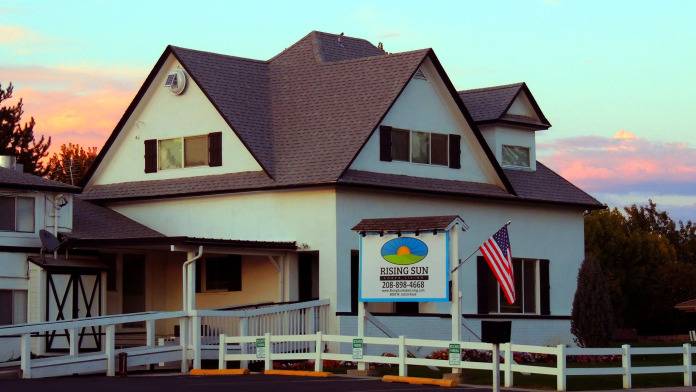I have been seen at the Boise VAMC for several years. Everytime I go to the agency for "Examinations, treatments, Care, or Services" as defined under 38 CFR 17.38 I file a claim for reimbursable travel. The Boise VA Medical Center has failed to give written notices as mand ...
About Boise VA Medical Center
Boise VA Medical Center is a mental health care and addiction recovery facility. Their programs include specialized services for adolescents, young adults, seniors, LGBTQ+ persons, persons with HIV/AIDS, homeless and indigent persons, and persons with co-occurring addiction and mental illness.
Inpatient Programs
The center’s inpatient programs allow clients to focus on their recovery in a highly structured and supported environment. Clients receive around-the-clock medical supervision, medical and mental health assessments, personalized care planning, and comprehensive case management. Those undergoing detox may be prescribed FDA-approved medications to ease withdrawal symptoms and prevent potentially serious complications. Clients also engage in intensive, trauma-informed individual, group, and family counseling drawing on proven modalities, including CBT and DBT. The program promotes clients’ sustained sobriety and successful community reintegration through robust, recovery-focused life-skills training that addresses topics such as coping, self-care, and relapse prevention. An array of evidence-based complementary therapies is available, including meditation, fitness therapy, nutrition therapy, and experiential therapy.
Outpatient and Aftercare Services
Outpatient and aftercare services ensure a complete continuum of care aligned with clients’ evolving needs. These may include step-down support, 12-Step program facilitation, employment and housing assistance, and referrals for medical, mental health, and social service programs.
Accreditation and Payment
Boise VA Medical Center is accredited by The Joint Commission, SAMHSA, and CARF. They accept private insurance, military insurance, Medicaid, sliding-scale payments, and self-pay. Financial aid is available.
Latest Reviews
Rehab Score
Gallery
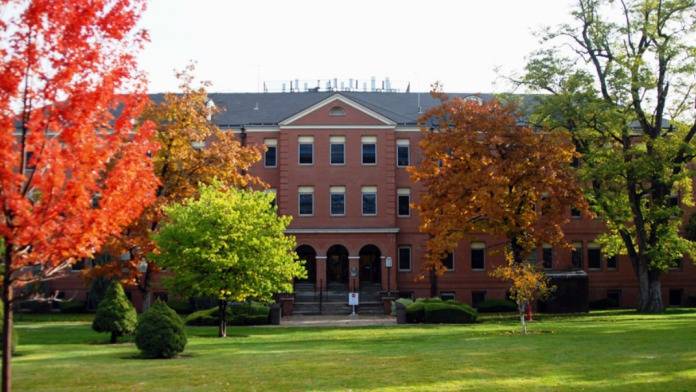

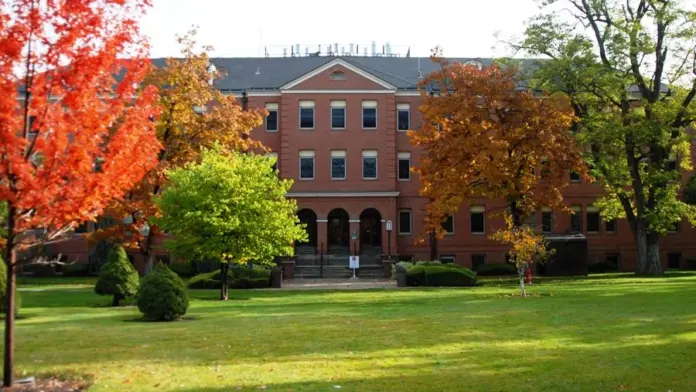
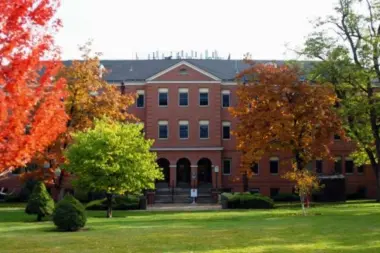

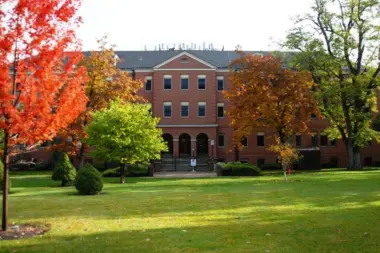
Other Forms of Payment
Private insurance refers to any kind of healthcare coverage that isn't from the state or federal government. This includes individual and family plans offered by an employer or purchased from the Insurance Marketplace. Every plan will have different requirements and out of pocket costs so be sure to get the full details before you start treatment.
Self-pay involves paying for treatment out of your own pocket. You can use savings or credit, get a personal loan, or receive help from family and friends to fund your treatment. If you don't have insurance or your insurance plan doesn't cover a specific program, self-pay can help ensure you still get the care you need.
Financial aid can take many forms. Centers may have grants or scholarships available to clients who meet eligibility requirements. Programs that receive SAMHSA grants may have financial aid available for those who need treatment as well. Grants and scholarships can help you pai for treatment without having to repay.
Sliding scale payments are based on a client's income and family size. The goal is to make treatment affordable to everyone. By taking these factors into account, addiction recovery care providers help ensure that your treatment does not become a financial burden to you or your family, eliminating one barrier to care.
Military members, veterans, and eligible dependents have access to specific insurance programs that help them get the care they need. TRICARE and VA insurance can help you access low cost or no cost addiction and mental health treatment. Programs that accept military insurance often have targeted treatment focused on the unique challenges military members, veterans, and their families face.
Medicaid is a state based program that helps lower-income individuals and families pay for healthcare. Medicaid covers addiction treatment so those enrolled can use their coverage to pay for rehab. When a program accepts Medicaid the client often pays very little or nothing out of their own pocket.
Addiction Treatments
Levels of Care
Outpatient Programs (OP) are for those seeking mental rehab or drug rehab, but who also stay at home every night. The main difference between outpatient treatment (OP) and intensive outpatient treatment (IOP) lies in the amount of hours the patient spends at the facility. Most of the time an outpatient program is designed for someone who has completed an inpatient stay and is looking to continue their growth in recovery. Outpatient is not meant to be the starting point, it is commonly referred to as aftercare.
Residential treatment programs are those that offer housing and meals in addition to substance abuse treatment. Rehab facilities that offer residential treatment allow patients to focus solely on recovery, in an environment totally separate from their lives. Some rehab centers specialize in short-term residential treatment (a few days to a week or two), while others solely provide treatment on a long-term basis (several weeks to months). Some offer both, and tailor treatment to the patient's individual requirements.
Clients in an intensive outpatient program (IOP) are typically in early recovery or are at an elevated relapse risk. This includes those who are exiting detox or inpatient care, those in crisis, and those who have chosen IOP in lieu of hospitalization. Intensive outpatient treatment involves a minimum of nine and a maximum of 20 treatment hours weekly. Most rehabs offer a variety of services, including medication assisted treatment (MAT), addiction counseling, recovery-focused life skills training, and holistic therapies.
Clients participating in a rehab aftercare program receive a variety of services designed to support their sustained sobriety and successful reintegration into their home, workplace, and community. Rehab aftercare services may include formal outpatient care, such as addiction counseling and recovery education provided in an outpatient treatment center. They may also include community-based services, including 12 step program induction, peer coaching, and vocational training. These programs are typically designed in partnership with the client's case manager.
12-step programs are addiction recovery models based on Alcoholics Anonymous (AA). A number of substance abuse programs (including some drug and alcohol rehab centers) use the 12 steps as a basis for treatment. Beginning steps involve admitting powerlessness over the addiction and creating a spiritual basis for recovery. Middle steps including making direct amends to those who've been hurt by the addiction, and the final step is to assist others in addiction recovery in the same way. 12-Step offshoots including Narcotics Anonymous (NA), Cocaine Anonymous (CA), Dual Recovery Anonymous (DRA), Sex and Love Addicts Anonymous (SLAA) and Gamblers Anonymous (GA).
When an individual's life is negatively impacted by substance use but they are resistant to treatment, a drug intervention in Idaho may be appropriate. Drug intervention programs are designed to break through this resistance and motivate the person to get help. During the intervention, the specialist helps loved ones bring reality to the individual and break through barriers that are preventing them from getting the help they need.
At certain points in the recovery process, it's important to have support available 24/7. 24-hour clinical care offers a safe environment in which to recover from drug or alcohol addiction in peace, knowing medical detox and other treatment will happen with professionals on hand.
Drug and alcohol addiction often takes a heavy toll on one's body. Over time, a physical dependence can develop, meaning the body physiologically needs the substance to function. Detox is the process of removing drugs and/or alcohol from the body, a process that can be lethal if mismanaged. Medical detox is done by licensed medical professionals who monitor vital signs and keep you safe, healthy, and as comfortable as possible as you go through detox and withdrawal.
Treatments
The goal of treatment for alcoholism is abstinence. Those with poor social support, poor motivation, or psychiatric disorders tend to relapse within a few years of treatment. For these people, success is measured by longer periods of abstinence, reduced use of alcohol, better health, and improved social functioning. Recovery and Maintenance are usually based on 12 step programs and AA meetings.
Drug rehab in Idaho provides treatment for addiction to drugs. It usually includes a combination of treatment methods that can involve counseling, medication, and a variety of evidence-based therapies. Programs are designed to help individuals manage their substance use disorder long-term.
Many of those suffering from addiction also suffer from mental or emotional illnesses like schizophrenia, bipolar disorder, depression, or anxiety disorders. Rehab and other substance abuse facilities treating those with a dual diagnosis or co-occurring disorder administer psychiatric treatment to address the person's mental health issue in addition to drug and alcohol rehabilitation.
A combined mental health and substance abuse rehab has the staff and resources available to handle individuals with both mental health and substance abuse issues. It can be challenging to determine where a specific symptom stems from (a mental health issue or an issue related to substance abuse), so mental health and substance abuse professionals are helpful in detangling symptoms and keeping treatment on track.
Opioid rehabs specialize in supporting those recovering from opioid addiction. They treat those suffering from addiction to illegal opioids like heroin, as well as prescription drugs like oxycodone. These centers typically combine both physical as well as mental and emotional support to help stop addiction. Physical support often includes medical detox and subsequent medical support (including medication), and mental support includes in-depth therapy to address the underlying causes of addiction.
Programs
Adult rehab programs include therapies tailored to each client's specific needs, goals, and recovery progress. They are tailored to the specific challenges adult clients may face, including family and work pressures and commitments. From inpatient and residential treatment to various levels of outpatient services, there are many options available. Some facilities also help adults work through co-occurring conditions, like anxiety, that can accompany addiction.
Young adulthood can be an exciting, yet difficult, time of transition. Individuals in their late teens to mid-20s face unique stressors related to school, jobs, families, and social circles, which can lead to a rise in substance use. Rehab centers with dedicated young adult programs will include activities and amenities that cater to this age group, with an emphasis on specialized counseling, peer socialization, and ongoing aftercare.
The Boise VA Medical Center takes pride in supporting LGBT veterans. VA is committed to a diverse workforce and an inclusive workplace and understands that diversity and inclusion are essential for a high-performing organization that delivers the best service to their Nation's Veterans. The Lesbian, Gay, Bisexual, and Transgender (LGBT) community is an integral aspect of their human diversity. To that end, VA has implemented several policies and programs addressing issues facing the LGBT community and is helping VA employees and patients access benefits made available by changes to Federal policy.
Clinical Services
Cognitive Behavioral Therapy (CBT) is a therapy modality that focuses on the relationship between one's thoughts, feelings, and behaviors. It is used to establish and allow for healthy responses to thoughts and feelings (instead of unhealthy responses, like using drugs or alcohol). CBT has been proven effective for recovering addicts of all kinds, and is used to strengthen a patient's own self-awareness and ability to self-regulate. CBT allows individuals to monitor their own emotional state, become more adept at communicating with others, and manage stress without needing to engage in substance abuse.
Dialectical Behavior Therapy (DBT) is a modified form of Cognitive Behavioral Therapy (CBT), a treatment designed to help people understand and ultimately affect the relationship between their thoughts, feelings, and behaviors. This group is open to all veterans. This group provides the opportunity to learn coping skills to decrease: interpersonal chaos, labile emotions and moods, impulsivity and confusion about self. This group offers veterans skills training in mindfulness, distress tolerance, interpersonal effectiveness, and emotion regulation.
Group therapy is any therapeutic work that happens in a group (not one-on-one). There are a number of different group therapy modalities, including support groups, experiential therapy, psycho-education, and more. Group therapy involves treatment as well as processing interaction between group members.
In individual therapy, a patient meets one-on-one with a trained psychologist or counselor. Therapy is a pivotal part of effective substance abuse treatment, as it often covers root causes of addiction, including challenges faced by the patient in their social, family, and work/school life.
Unlike other more coercive methods, motivational interviewing does not impose change on the client. Instead, the therapist asks questions, listens, and reflects the client's thoughts back to them. This helps the person come to their own conclusions and supports making changes on their own terms based on those conclusions.
Trauma therapy addresses traumatic incidents from a client's past that are likely affecting their present-day experience. Trauma is often one of the primary triggers and potential causes of addiction, and can stem from child sexual abuse, domestic violence, having a parent with a mental illness, losing one or both parents at a young age, teenage or adult sexual assault, or any number of other factors. The purpose of trauma therapy is to allow a patient to process trauma and move through and past it, with the help of trained and compassionate mental health professionals.
Whether a marriage or other committed relationship, an intimate partnership is one of the most important aspects of a person's life. Drug and alcohol addiction affects both members of a couple in deep and meaningful ways, as does rehab and recovery. Couples therapy and other couples-focused treatment programs are significant parts of exploring triggers of addiction, as well as learning how to build healthy patterns to support ongoing sobriety.
Research clearly demonstrates that recovery is far more successful and sustainable when loved ones like family members participate in rehab and substance abuse treatment. Genetic factors may be at play when it comes to drug and alcohol addiction, as well as mental health issues. Family dynamics often play a critical role in addiction triggers, and if properly educated, family members can be a strong source of support when it comes to rehabilitation.
Part of recovery is replacing unhealthy habits with healthy life skills. These include psychological skills and social skills that allow you to thrive post treatment. While in rehab in Idaho, you'll work on developing these skills so you have the tools you need for a new life.
Chronic substance use leads to biochemical imbalances that contribute to cravings and poor mental health. Nutrition therapy works to restore balance by giving your body the nutrients it needs for optimal performance.
Nicotine Replacement Therapy (NRT) is a way of getting nicotine into the bloodstream without smoking. It uses products that supply low doses of nicotine to help people stop smoking. The goal of therapy is to cut down on cravings for nicotine and ease the symptoms of nicotine withdrawal.
Amenities
-
Yoga Studio
-
Residential Setting
-
Private Rooms
-
Spa
-
Mountain Views
-
Gardens
-
Walking Trails
Staff & Accreditations
Staff
David Wood
Director
Nate Stewart
Associate Director
Andrew Wilper, MD, MPH
Chief of Staff
Angelina Knesel, MSN, RN, CNL
Nurse Executive
Accreditations

The Commission on Accreditation of Rehabilitation Facilities (CARF) is a non-profit organization that specifically accredits rehab organizations. Founded in 1966, CARF's, mission is to help service providers like rehab facilities maintain high standards of care.
CARF Accreditation: Yes
Accreditation Number: 229612

The Joint Commission, formerly known as JCAHO, is a nonprofit organization that accredits rehab organizations and programs. Founded in 1951, the Joint Commision's mission is to improve the quality of patient care and demonstrating the quality of patient care.
Joint Commission Accreditation: Yes
Accreditation Number: 4740

The Substance Abuse and Mental Health Services Administration (SAMHSA) is a branch of the U.S. Department of Health and Human Services. Established in 1992 by congress, SAMHSA's mission is to reduce the impact of substance abuse and mental illness on American's communities.
SAMHSA Listed: Yes
Contact Information
500 W Fort St
Boise, ID 83702


